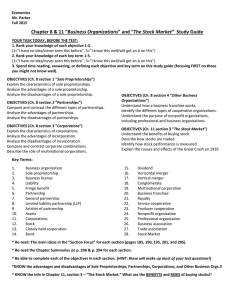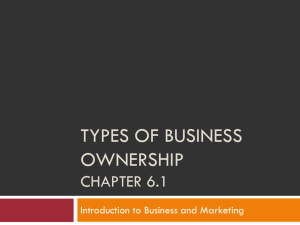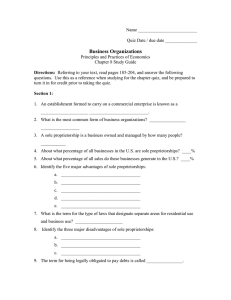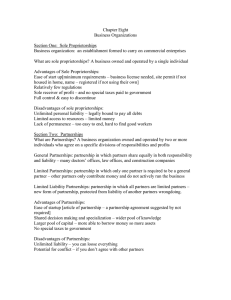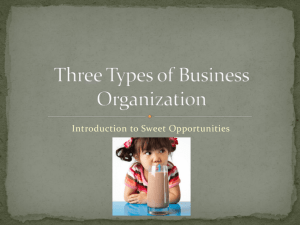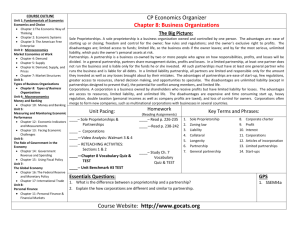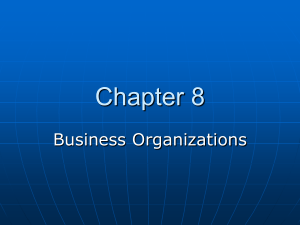Business Organizations: Sole Proprietorships, Partnerships, More
advertisement
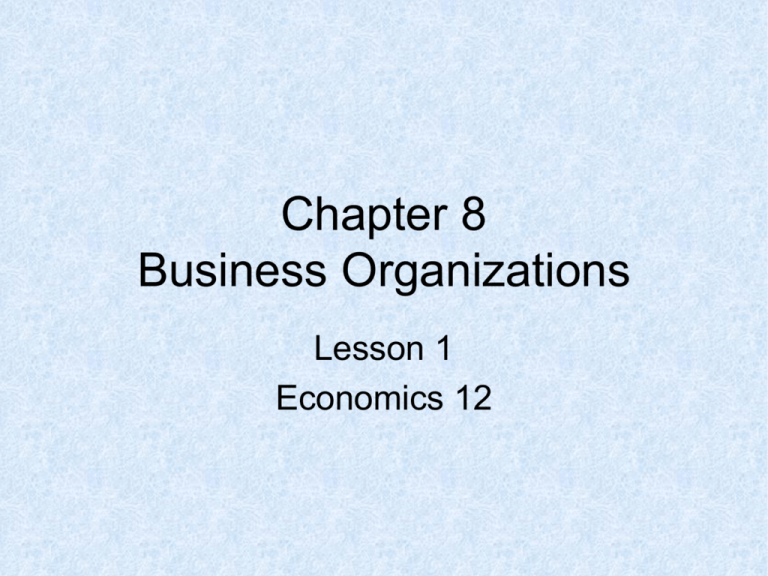
Chapter 8 Business Organizations Lesson 1 Economics 12 Sole Proprietorships • Sole proprietorships • Smallest form of business • Owned and operated by one person • No requirements except occasional business licenses / fees • Advantages • Easy to start • Relatively simple to manage • Keep all the profits • No separate business income taxes • Satisfaction of owning a business • Easy to end Sole Proprietorships • Disadvantages • Unlimited liability • Difficult to raise financial capital • Inefficiency if enough personnel are not hired or enough inventory stocked • Possibly limited managerial experience • Difficulty attracting qualified employees • Limited life Partnerships • Partnerships • Owned by two or more people • Types of Partnerships • General • Limited • Partnerships are easy to start • Usually consists of drawing up papers to specify the arrangement between the partners Partnerships • Advantages • Easy to start • Easy to manage • Lack of special taxes • Financial capital attracted more easily than proprietorships • Operations are more efficient due to slightly larger size • Disadvantages • Each partner is fully responsible for the acts of all other partners • Limited partners may lose their initial investment if the business fails • Limited life • Potential for conflict between partners Corporations • Corporations • Recognized as separate legal entities with all rights of an individual • File for permission to form from national or state government • Grants a charter specifying number of shares of stock that may be sold • Stock Types • Common • Preferred Corporations • Advantages • Ease of raising financial capital • Limited liability for owners • Directors can hire professional managers to run the company • Unlimited life • Ease of transfer of ownership • Disadvantages • Double taxation • Difficulty and expense of getting a charter • Shareholders (owners) have little say in how the business is run • More government regulation Franchises • Franchise • The franchisee rents or leases the name, business profile, and way of doing business from the owner, or franchisor. • Advantages to Franchisee • National advertising • Instant access to a successful product line • Professional advice when needed • Advantages to the Franchisor • Ability to expand the business without excess financial risk or liabilities • Income brought in by initial franchise payment and monthly royalty fees • Franchisee who is highly motivated to make the franchise work
